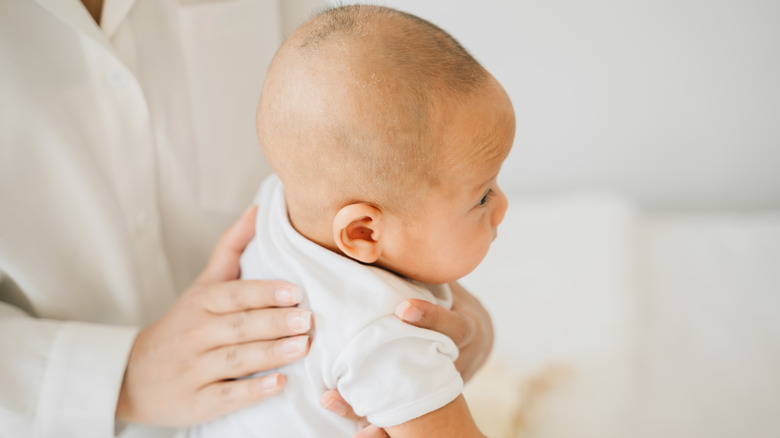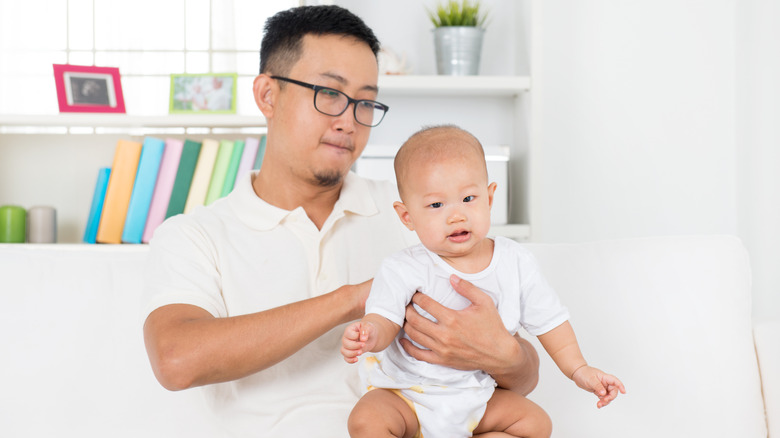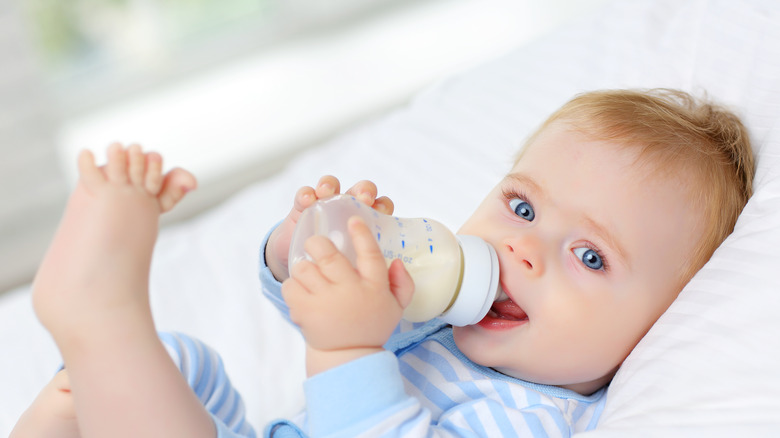What It Means When Your Baby Won't Burp
Parents of newborns and infants seem to perform the routine of feeding and burping their baby without needing to give it much thought at all. Burping after feeding is a second-nature part of caring for their baby.
According to Nemours, burping is an important part of the feeding process. Burping allows the baby to get rid of any excess gas that was caused by swallowing air during feeding. This is important because excess gas can lead to spitting up, crankiness, and gas pains for Baby.
No matter how proficient a parent becomes at burping their baby, sometimes those firm yet gentle pats on the back don't produce any burps. And this absence of a burp after feeding can be a cause for concern for parents. Is it normal for a baby to not burp after gulping down milk? Does the absence of a burp indicate a health problem? No, not necessarily.
Why your baby isn't burping
You've tried everything that you can think and your baby still won't burp. There are a number of reasons that could be causing this. The time of day you feed your baby can affect your baby's need to burp. According to Healthline, babies may eat slower during the nighttime, which will decrease the amount of air that is swallowed during the feeding. Therefore, the need to burp may decrease.
If you are breastfeeding rather than bottle feeding, according to Boys Town Pediatrics, it is likely that your baby will swallow less air and require less burping.
If you've tried a number of positions and techniques to burp your baby and it's still not happening, Nemours says that your baby may have learned to eat without swallowing excess air. Additionally, most babies will outgrow the need for burping at four to six months old, per Boys Town Pediatrics.
Burping needs vary
Is skipping out on burping your baby after a feeding a recipe for a colicky baby? A trial that was performed to analyze whether burping prevented colic or regurgitation in infants, according to an article published in Child: Care, Health and Development. The study concluded that burping did not significantly reduce colic or spitting up in healthy, full-term infants.
The act of burping your baby could even be the cause of some of the side effects that you're trying to prevent. Clay Jones, a pediatrician, told McGill University, "There is no physiologic reason why babies would need help burping." Jones said, "Hitting a baby with a full stomach on the back will cause vomiting," he continued.
Of course, no two babies are alike in every way and the same holds true when it comes to burping. Your baby's need to burp can be impacted by several factors. According to Healthline, some babies are gassier than others and will burp more frequently. This could be due to the mother's diet for breastfed babies. Even fast milk letdown from the mother can cause gassiness for the baby.
The position your baby is held in can also impact your baby's ability to burp. Allina Health recommends several positions for mothers to successfully burp their babies. Also, there will just be times when your baby just doesn't need to burp at all. For breastfed babies, Allina Health states that if your breastfed baby doesn't burp after one minute then they don't need to.



